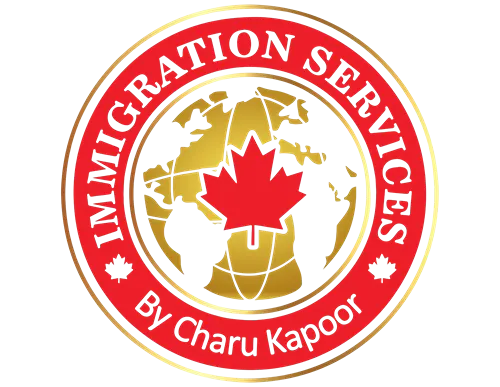Canada Permanent Residence (PR)
A Canadian permanent resident is an individual who has acquired the privilege of permanent residency status by immigrating to Canada. This status imparts numerous advantages akin to those enjoyed by Canadian citizens. Nevertheless, there exists a distinction wherein permanent residents are obligated to uphold their status by fulfilling specific conditions, with the most notable being the residency obligation.
Entailing a range of rights and responsibilities, permanent residents gain access to social benefits, healthcare facilities, educational opportunities, and the freedom to live, work, or study anywhere within Canada. These privileges resemble those available to citizens, fostering a sense of inclusivity and integration within Canadian society. However, permanence in this status is contingent upon meeting residency requirements, as stipulated by the residency obligation.
Thus, while permanent residents savor the privileges paralleling those of citizens, they are entrusted with the responsibility to honor the residency obligation as an essential aspect of maintaining their esteemed status within the Canadian realm.


Discover your Canadian
Immigration Options
What is Permanent Residence (PR)?
A permanent resident signifies an individual who attains permanent resident status by undergoing the immigration process to Canada, distinct from being a Canadian citizen. These individuals retain their citizenship of other countries while enjoying a wealth of privileges akin to Canadian citizens. It’s essential to differentiate that temporary visitors to Canada, such as students or foreign workers, do not fall under the category of permanent residents.
Refugees resettled from overseas assume permanent resident status via either the Government-Assisted Refugee Program or the Private Sponsorship of Refugees Program. It’s noteworthy that individuals making a refugee claim within Canada don’t automatically attain permanent resident status. For this to transpire, their claim must first receive approval from the Immigration and Refugee Board. Subsequently, they must initiate an application process to secure permanent resident status.
The Permanent Resident (PR) Card:
The Permanent Resident (PR) card plays a pivotal role in evidencing one’s permanent resident status within Canada. This card is indispensable for those who travel beyond Canadian borders, serving as proof upon re-entry via commercial means like airplanes, boats, trains, or buses. In situations where PRs venture abroad without a valid PR card or fail to carry it, the prerequisite is to seek a permanent resident travel document before returning to Canada through commercial transport.
Time Lived in Canada:
In order to retain the esteemed permanent resident status, residing in Canada for a minimum of 730 days over the past five years is mandatory. Notably, these days aren’t required to be continuous, with periods spent abroad potentially contributing to the total. Employing tools like travel journals or consulting Canadian border officers upon entry into Canada aids in tracking time. Applying for or renewing the PR card also provides insights into eligibility and helps applicants monitor their duration of stay in Canada.
Permanent Residence (PR) Card Renewal
The majority of Canadian permanent resident cards exhibit a validity period of five years, although instances arise where the validity extends only for one year. The Canadian government emphasizes the importance of permanent residents remaining vigilant about their card’s expiry date. To ensure a seamless continuation of their status, it is advised to initiate the renewal process for the Canadian permanent resident card within a timeframe of six months before the card’s expiration.
Maintaining an updated and valid permanent resident card holds paramount significance for individuals residing in Canada under this esteemed status. A valid card not only serves as tangible proof of one’s permanent resident status but also acts as a vital document when re-entering Canada after international travel. By encouraging applicants to apply for renewal well in advance, the government aims to mitigate potential disruptions in their residency status or travel plans.
It is worth noting that the process of renewing a permanent resident card involves several steps, including submitting the application, providing requisite documentation, and fulfilling any additional requirements imposed by the government. By initiating the renewal procedure early, permanent residents can alleviate the stress associated with impending expiration and ensure the seamless continuation of their status and associated privileges.
Permanent Resident Travel Document (PRTD)
When a permanent resident finds themselves outside of Canada and intends to re-enter the country, they have the option to apply for a permanent resident travel document (PRTD) if their valid PR card is unavailable. The PRTD serves as a travel authorization permitting a single entry into Canada. This document proves particularly useful for permanent residents seeking to return to Canada prior to obtaining a PR card or renewing their existing one.
The PRTD fulfills a pivotal role in ensuring the re-entry of permanent residents into Canada, even when their PR card is not accessible or current. By offering a temporary travel solution, it allows individuals to maintain their ties to Canada and fulfill various commitments while navigating circumstances that might have hindered timely PR card renewal. It is important to note that the PRTD’s single-entry nature necessitates its use solely for one trip to Canada, motivating permanent residents to apply for their PR card renewal promptly to secure uninterrupted mobility and permanent resident status.
Benefits of Canadian PR Status
Acquiring Canadian permanent resident status ushers in a plethora of significant advantages that contribute to a prosperous and secure life within the country:
1. Geographical Flexibility
Canadian permanent residents enjoy the liberty to reside and seek employment anywhere across the nation. This unparalleled freedom empowers them to migrate in pursuit of better opportunities without constraints tied to a specific employer or province. The Canadian permanent resident card or permanent resident travel documents (PRTD) facilitate seamless border crossings, ensuring hassle-free mobility.
2. Universal Healthcare and Social Services
Access to Canada’s universal healthcare system provides a fundamental benefit to permanent residents. This system grants them cost-free access to comprehensive medical care, thereby enhancing their well-being. Moreover, this privilege extends to encompass various social services designed to support residents and nurture a strong sense of inclusivity.
3. Family Unity Through Sponsorship
The provision for family sponsorship holds immense value for permanent residents. They can extend the opportunity to sponsor their spouse, common-law partner, and dependent children, enabling their loved ones to join them in Canada. Express Entry applicants, in particular, can streamline this process by including family members in their initial application, obviating the need for separate sponsorship efforts.
4. Education Advantages
The benefits extend to education as well, where the children of Canadian permanent residents enjoy free schooling until secondary levels. Post-secondary education is considerably more affordable for permanent residents, offering a competitive advantage over international students.
5. Path to Citizenship
Canadian permanent residency serves as a stepping stone towards attaining Canadian citizenship. After residing in Canada for three of the last five years, permanent residents become eligible to apply for citizenship. This transition bestows the right to vote, the ability to procure a Canadian passport, and obviates the necessity to renew status periodically.
6. Legal Safeguards
Canadian permanent residents are shielded by the robust protection afforded by Canadian law and the Canadian Charter of Rights and Freedoms. These safeguards guarantee fundamental rights and freedoms, reinforcing the security and equality enjoyed by permanent residents under the nation’s legal framework.
In summation, the multifaceted benefits of Canadian permanent residency encompass various aspects of life, ensuring a seamless blend of personal and professional growth, healthcare access, educational opportunities, family reunification, and the prospect of full Canadian citizenship in due course.
Canadian Permanent Residence Requirements
Sustaining permanent resident status in Canada entails adhering to a crucial aspect known as the residency obligation. This obligation encompasses the requirement for an individual to maintain a specific level of physical presence within the country. The framework for Canada’s residency obligation mandates that a permanent resident must accumulate a minimum of 730 days of physical presence within Canada over a span of five years, unless they qualify for one of several designated exceptions.
The residency obligation forms an essential cornerstone of maintaining one’s cherished permanent resident status, reflecting the commitment to contributing actively to Canadian society and embracing the opportunities offered by the country. The stipulation of 730 days within five years aims to strike a balance, enabling permanent residents to engage with Canadian life while accommodating necessary travel or periods spent abroad. This regulation underscores the significance of nurturing connections with Canada, fostering a genuine integration into the nation’s fabric.
However, recognizing the diversity of circumstances, Canada acknowledges certain exceptions that might impede one’s ability to strictly meet the 730-day criterion. These exceptions encompass scenarios such as employment abroad for a Canadian organization or accompanying a Canadian citizen or permanent resident spouse outside Canada. Navigating these exceptions showcases Canada’s dedication to understanding the nuanced situations of its permanent residents, aiming to align the residency obligation with practical realities while maintaining the essence of belonging to the Canadian community.
Canadian Citizenship
Individuals aspiring to attain Canadian citizenship as foreign nationals must fulfill a range of prerequisites, with one key requirement being the possession of valid permanent resident status within Canada. However, it’s important to note that the residency obligations for permanent residents aiming for citizenship slightly differ from those needed for the renewal of their permanent resident status.
The journey towards Canadian citizenship embodies a significant milestone, reflecting a deep commitment to becoming an integral part of the Canadian social fabric. While permanent residents are familiar with their residency obligations in the context of maintaining their status, the path to citizenship involves distinct considerations that encapsulate an individual’s integration, civic participation, and sustained commitment to the nation.
In this process, the intricacies of residency obligations and how they align with the pursuit of Canadian citizenship warrant careful exploration. For a comprehensive understanding of the nuanced aspects of transitioning from permanent resident status to Canadian citizenship, Charu Kapoor Immigration’s web resource serves as an invaluable guide. This resource delves into the intricacies of citizenship requirements, shedding light on the intersection of residency obligations and the aspiration to forge a lasting bond with Canada.
Renouncing Permanent Resident Status
The expiration of a Canadian permanent resident card does not automatically lead to the loss of permanent resident status. The status of a permanent resident remains intact unless a deliberate and official process is undertaken. When considering the option of renouncing their permanent resident status, individuals have the opportunity to submit an application voluntarily, expressing their intent to relinquish this status. This decision to renounce permanent resident status is significant and should be considered thoughtfully, as it marks a conscious choice to discontinue the privileges associated with this esteemed status.
The voluntary renunciation process serves as a pathway for individuals who may not be able to fulfill their residency obligations or who have personal reasons to no longer retain their permanent resident status. This process acknowledges that circumstances and priorities can evolve over time, and it offers a means for individuals to formally sever their ties as permanent residents. By initiating the renunciation process, individuals acknowledge their freedom to opt out of the obligations and entitlements associated with permanent resident status.
Furthermore, the consideration to renounce permanent resident status may stem from practical considerations, such as travel plans. Individuals who foresee not meeting their residency obligations and intend to travel to Canada in the future might choose renunciation as a strategic move to streamline their travel experience. This deliberation underscores the importance of understanding the implications of permanent resident status expiration, while also reflecting the flexibility within the Canadian immigration framework to accommodate diverse circumstances and personal choices.

